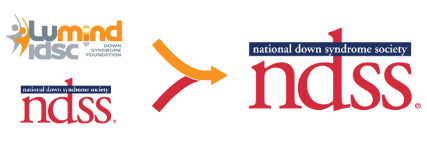MARLBOROUGH, MA. (June 22, 2018) — On Friday, June 21, The National Institute of Health (NIH) unveiled the details of the new trans-NIH initiative devoted to individuals with Down syndrome: the INCLUDE Project (INvestigation of Co-occurring conditions across the Lifespan to Understand Down syndromE). INCLUDE will focus on improving the health and well-being and learn about risk and resilience factors for common diseases that they share with individuals who do not have Down syndrome. The substantial envelope — $21M in additional funds in 2018 with $60M each of the following 4 four years subject to congressional approval — represents approximately a 65% increase this year and more than 150% in following years, based on NIH’s 2017 funding level for Down syndrome.
As stated in the NIH INCLUDE Project Research Plan, INCLUDE will build a comprehensive, trans-NIH strategy to address critical health and quality-of-life needs for individuals with Down syndrome, leveraging the full range of resources across NIH to bring safe and effective treatment options for co-occurring conditions more rapidly to individuals with Down syndrome and their families. The main goals are to accelerate the development of new therapies, while simultaneously bringing promising agents already in development to individuals with Down syndrome as quickly as possible.
The project will involve 18 institutes and centers at NIH and is designed to focus on three aspects of Down syndrome research over the next several years:
- Conduct targeted basic science studies that are difficult but with high benefit potential.
- Assemble a large study population cohort of individuals with Down syndrome.
- Establish a clinical trials network so that therapies for co-occurring conditions can begin to be tested in the Down syndrome population as soon as possible.
For organizations like LuMind™ Research Down Syndrome Foundation, this is great news. “LuMind Research Down Syndrome Foundation (LuMind RDS) is thrilled to see the direction that the NIH is taking for the INCLUDE Project, as it is very much aligned with our own priorities to advance treatment options. Over the past year, we have been laying the groundwork by evaluating and supporting challenging but high impact approaches such as gene and chromosome therapies, and we have brought researchers and collaborative Down syndrome non-profits from US and Europe together to build an Alzheimer’s Clinical Trial Network focused on Down syndrome. In addition, we have developed over the last five years a cohort population study focused on cognition in several collaborative sites across US,” says Hampus Hillerstrom, President and CEO of LuMind RDS.
“We believe these NIH priorities and substantial additional funds will be a game changer and, with the combined efforts from research-focused foundations like LuMind RDS, Global Down Syndrome Foundation and Jérôme Lejeune, will speed up the availability of much needed treatment options for our loved ones with Down syndrome.”
According to Hillerstrom, LuMind RDS will continue to work closely with the NIH, the researchers, clinicians and other Down syndrome organizations, to maximize the health impact of these important funds and bring forth safe and promising new treatment options for people with Down syndrome.
Dr. Bjoern Sperling, LuMind RDS’ Chairman of the Board and VP Medical Specialist in Alzheimer’s Division at H. Lundbeck A/S, points out: “The substantial size of the $261M envelope and the thoughtfulness of the plan outlined by NIH bodes well to making rapid advances of ground-breaking new treatments for Down syndrome and to moving them into and through the clinical trials process. At LuMind RDS we believe that there are many promising approaches that deserve to be tested and the combination of early research, a cohort study and a clinical network will be very powerful to make substantial strides in the next years.”
About LuMind Research Down Syndrome Foundation:
LuMind Research Down Syndrome Foundation is dedicated to enable independence and enrich community engagement for all individuals with Down syndrome by identifying and accelerating high impact research.
Established in 2004, we have awarded $17M in research grants to fund groundbreaking projects at top academic institutions and biopharmaceutical companies leading to more than $30M in concurrent funding from the NIH, industry and other sources. LuMind RDS-supported research has led to the discovery of 10 therapeutic targets, the development of 3 Down syndrome-specific cognitive assessment scales, 15 interventional and observational clinical trials with more than 1300 participants and the initiation of several consortia. LuMind RDS is striving to significantly improve independence and health for all individuals with Down syndrome by focusing on four scientific research areas — preventing Alzheimer’s onset, improving cognition, developing gene therapies, and advancing understanding — and collaborating with public agencies, other Down syndrome organizations, and the pharmaceutical industry to rapidly advance new treatment options for individuals with Down syndrome.
